RETRO: ‘Enchanted Forest’ Doesn’t Trust Your Kids’ Intelligence
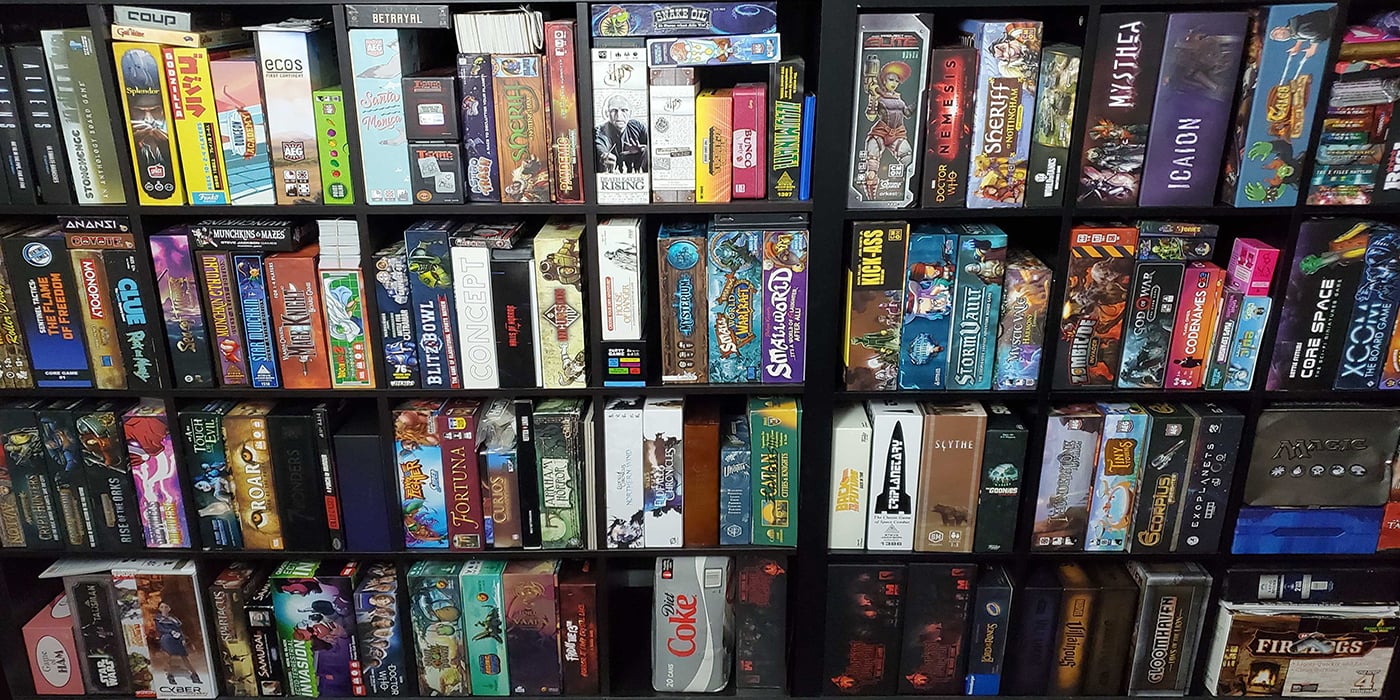

Treasures from history’s favorite fairy tales have been lost in the Enchanted Forest and it’s up to you to find them!
As it has been explained to me, most people alive today were, at some point, children. I myself, never went through that dreadful process and for that I count myself lucky. I don’t claim to understand how or why this unusual phenomenon occurs with such frequency, but that’s not the point of today’s article.
No, today we will be discussing Enchanted Forest, a delightful and excellent children’s board game which brings many game mechanics to the field without being overwhelming assuming you’re not a child of today. More on that later.
The game was initially released in 1981 and has since done through many, many reprints for different languages and updates, as well as a Wizard of Oz retheme. It won Spiel des Jahres (Game of the Year) in 1982 and received a reprint in 2014 with updated components, “modernized” rules and a fancy new box cover.
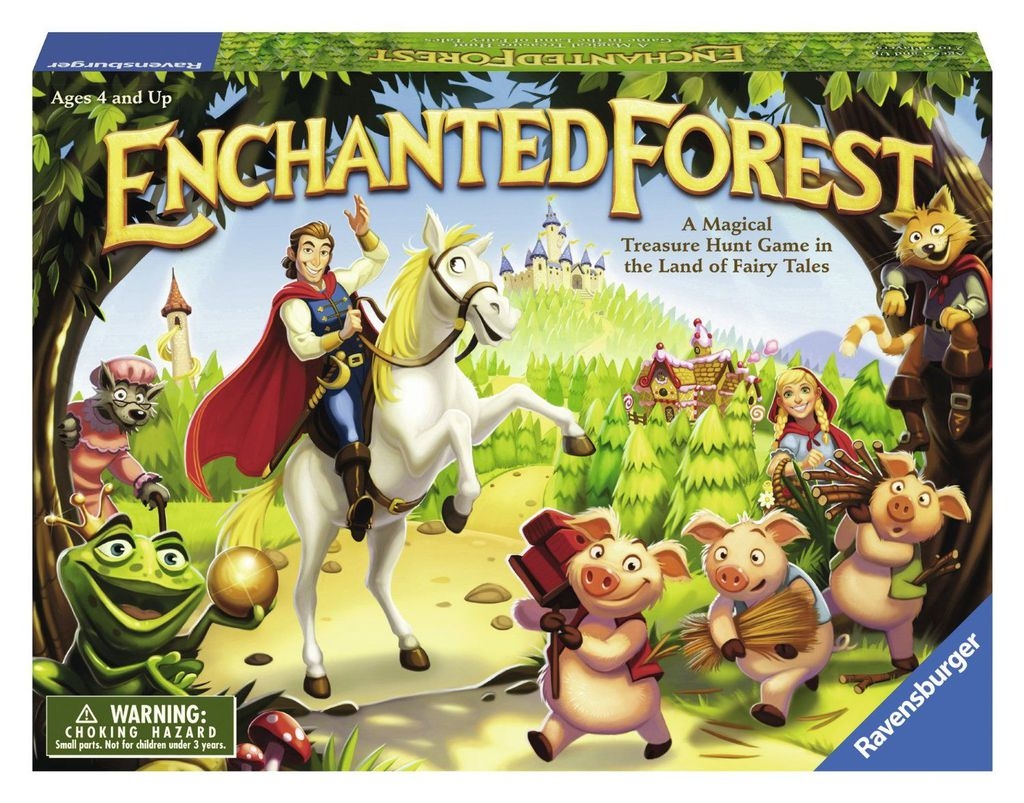
The modern game offers players the choice of the Classic rules or the Modern rules. They function basically the same, but the Modern rules remove some of the more complicated and obtuse rules because children today can’t be trusted to remember things like ‘conditional rules’ or ‘more than one thing at a time’.

Modern Rules
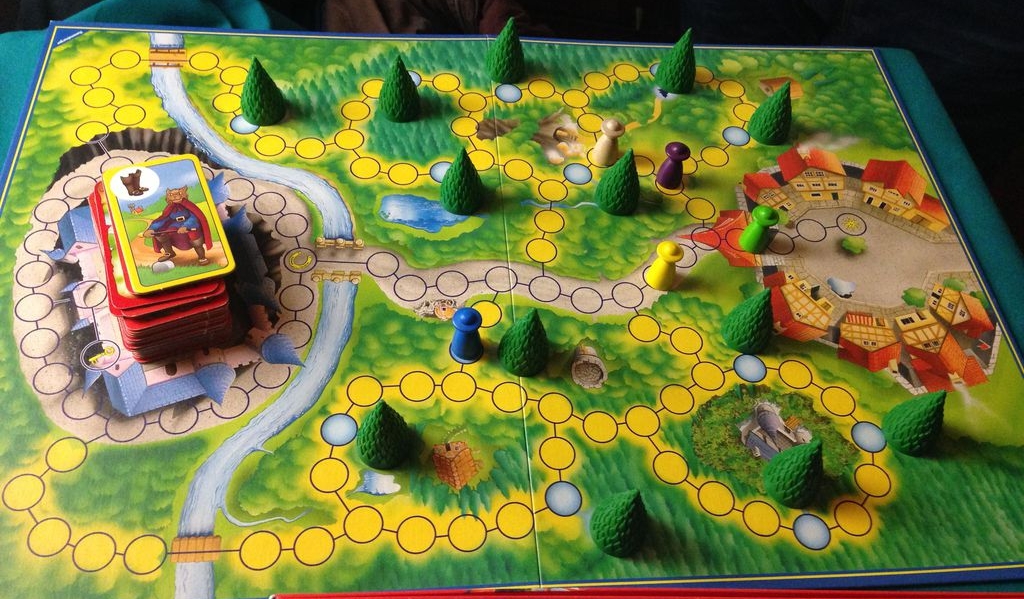
Within both rulesets, players are each trying to find the lost hidden treasures within the trees. At the start of the game, a ‘legend tile’ is flipped over and placed upon the rest, showing the players which treasure they’re searching for.
They roll their dice and move that many spaces. If they land at a blue ‘tree’ space, they get to secretly look under the tree to see which treasure is hidden there.
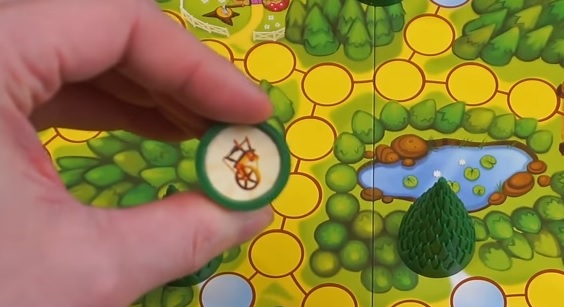
Once they have found the treasure, they move to the castle and to the ‘key’ space. Once there, they can pick up a tree and if it is the requested treasure, that player collects that legend tile and a new tile is revealed, and a new hunt begins.
Once a player collects 3 legend tiles, they win!
Classic Rules
It certainly does.
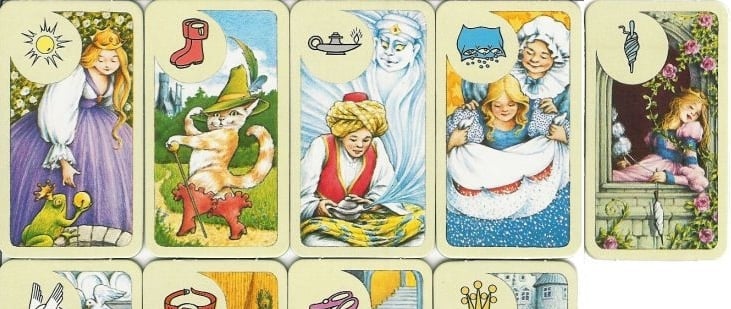
The Classic ruleset follows the basic rules of the Modern ruleset but with added things and some different rules about how to roll and move.
If a player rolls doubles, they can cast magic. This has one of three effects:
- Move to any unoccupied blue space and look under the tree there
- Move to the first space beyond the stone bridge at the castle; or if it is already beyond the bridge, move it directly to the space with the key
- Randomly change the legend card

When rolling to move in the Classic ruleset, players roll both dice then move the full amount noted on one die of their choice, then the other die. Both moves count for having landed on those spaces, triggering game effects like looking at trees. However, if a player lands on top of another player during these stops, they send that player back to Start. So properly choosing with which die to move with first can really change the course of the game.
Magic is a very powerful effect and the ‘move one dice at a time’ rule can require a good amount of critical thinking and decision making skills. It’s a good thing we don’t risk giving our children these dangerous things and these rules are removed from the Modern ruleset.
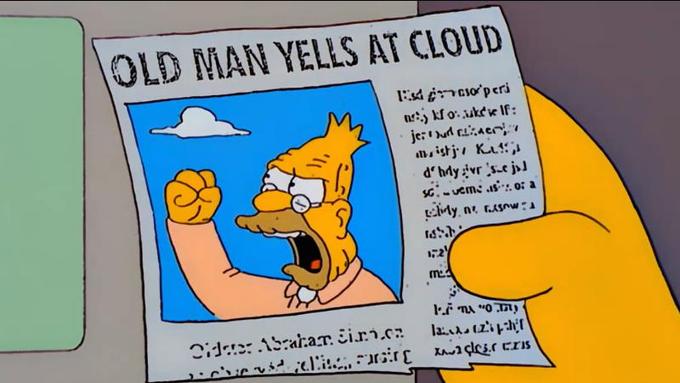
Final Thoughts
Overall, Enchanted Forest is a fantastic game for children. If I had ever been one, I’m sure I would have enjoyed playing it.
The searching and hunting aspect of the game as well as the memory aspect I think would probably appeal to many kids. It also incorporates a fairy tale theme that will obviously resonate well with many. I would highly recommend checking this game out if you like to find a great game to play with your children.
………or while drunk. This game would be great fun several shots into a bottle of whiskey. But maybe that’s just me.
~Thanks for reading!




